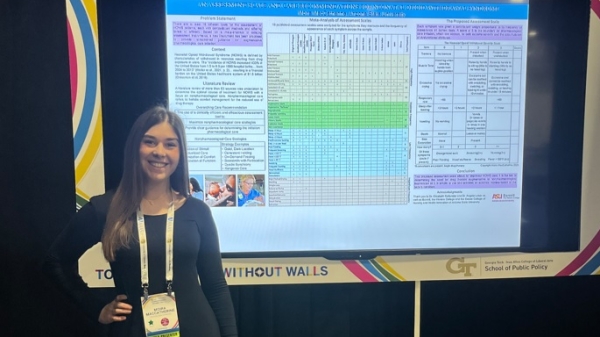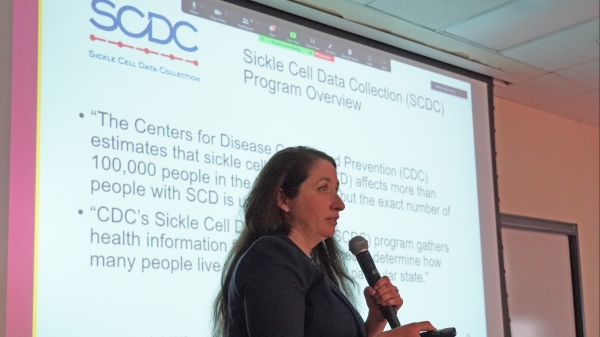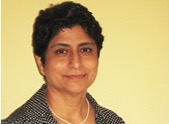A new way to battle obesity
ASU master's program trains health-care professionals to treat obesity by casting a wider net

Obesity rates in the United States continue to skyrocket from decade to decade. And while awareness for this issue has been growing in recent years, so have the waistlines of many Americans.
As part of the effort to combat this health epidemic, ASU has created a Master of Science in Obesity Prevention and Management program that aims to equip health professionals with a complex, holistic view of the causes of obesity.
Punam Ohri-Vachaspati (pictured at left), who leads the program, describes the master's in obesity as an innovative, interdisciplinary degree that integrates perspectives from the social, applied, life and health sciences to provide students with the skills and knowledge necessary to develop effective obesity solutions for individuals and communities.
And, to be clear, this program doesn’t advocate any one particular method for weight loss. Rather, it stresses the complexities of obesity and how important it is to treat it with a multidisciplinary approach encompassing the social, cultural, health, environmental and psychological issues associated with obesity.
“Our students are risk takers — this is a new type of degree, and they are eager to be pioneers,” said Ohri-Vachaspati, an associate professor of nutrition in ASU’s School of Nutrition and Health Promotion in the College of Health Solutions.
Program graduate Libby Dachenhaus is one of these pioneers.
“The concept of the program is incredibly unique,” Dachenhaus said. “Its development reflects the demand for more professionals in multiple fields to become more competent in addressing obesity.”
Students delve into the complex factors underlying obesity throughout the program, starting with an introductory course that brings in ASU faculty members and external experts from many disciplines.
“In an introductory course, after learning some basics about obesity, students have the opportunity to learn about various perspectives on obesity from 15 to 20 experts in various areas from physical activity, nutrition, law, anthropology and psychology, among others,” Ohri-Vachaspati said. “This course then guides students to choose courses that align with their interests. Students also do a thesis or an applied project where they focus on designing an intervention or undertake research in a community setting in the area of obesity prevention and management.”
A major goal of the program is to help prepare a workforce that understands the complexity of obesity.
“Prevention is an approach that is being advocated. But with a large segment of the population already obese, new ways of thinking about solutions in a multidisciplinary ways is warranted,” Ohri-Vachaspati said. “It is important that the emerging health-related workforce understands the complex origins of obesity and appreciates why it is important to address this problem on multiple fronts.”
That’s why Theresa Hart enrolled in the program. As a nurse with 24 years of experience, Hart said she was left longing for a deeper understanding of the root causes of illness.
“I would take care of these patients but I felt that we, as a health-care team, were only treating symptoms and not getting to the underlying issues of why these patients were so sick,” Hart said. “I believe in prevention and would like to be a health-care professional who promotes health.”
The program, which began in 2014, is a joint effort of Mayo Clinic-ASU Obesity Solutions and the School of Nutrition and Health Promotion. It has graduated two students to date with 11 currently enrolled. For more information, visit https://chs.asu.edu/snhp/master-science-obesity-prevention-management.
More Health and medicine

Nursing student wins top award for research on neonatal opioid withdrawal
An experience Moira MacCatherine had as a teenager volunteering in a Level III neonatal intensive care unit impacted her in such a way that it would later inspire her research as a nursing major at…

College of Health Solutions course to explore science behind longevity, well-being
Arizona State University’s College of Health Solutions has responded to the surge in interest in blue zones — those rare communities where some of the oldest people on Earth reside — with a new, self…

ASU center hosts community gathering to discuss latest health research
Communication and collaboration were front and center as Arizona State University’s Center for Health Information and Research, or CHiR, met with community partners and other stakeholders on April 3…
